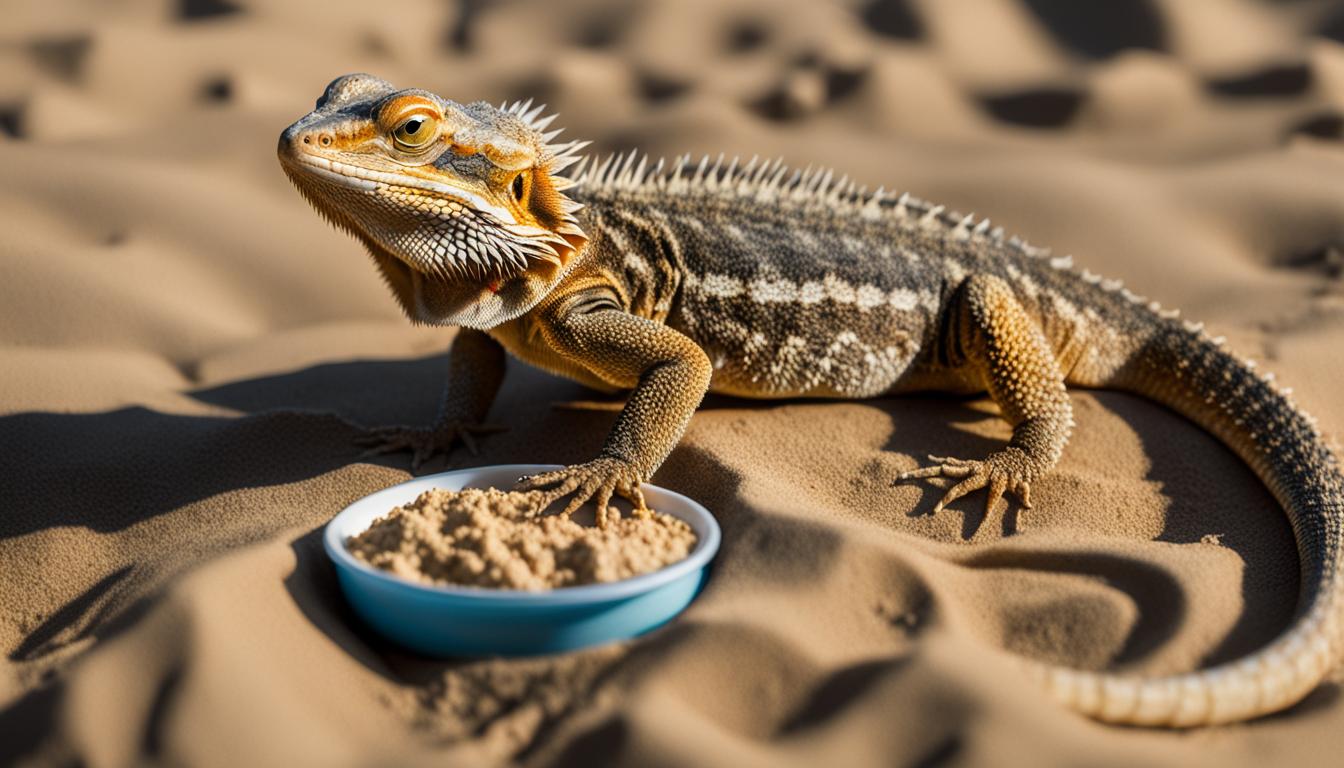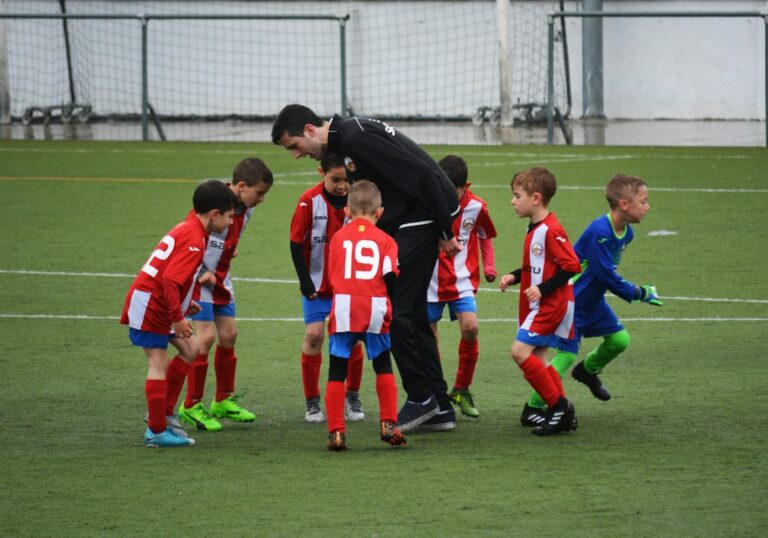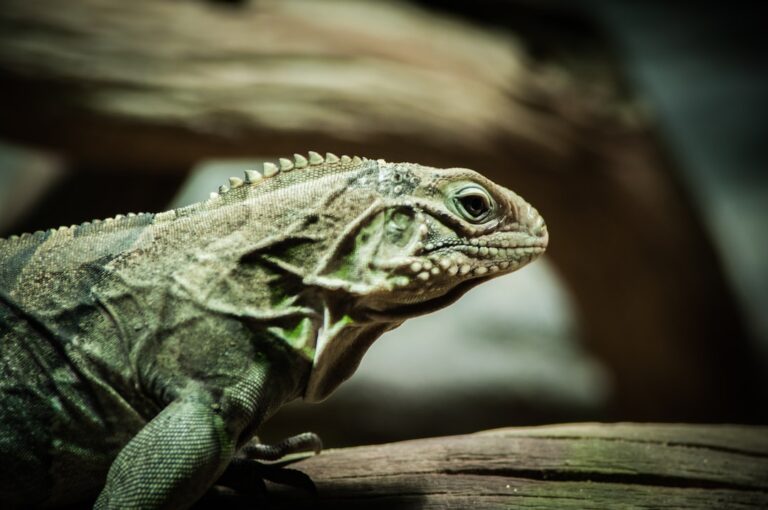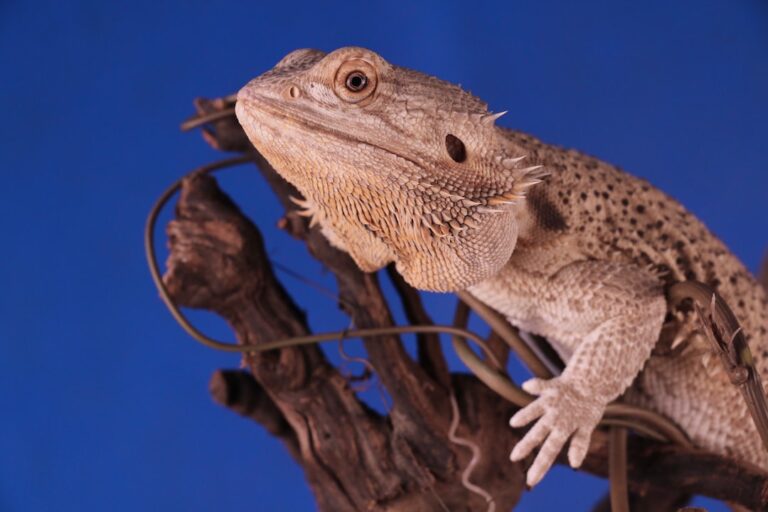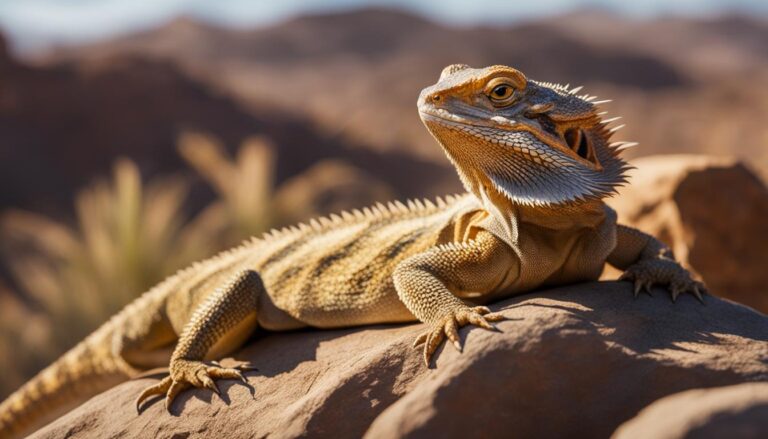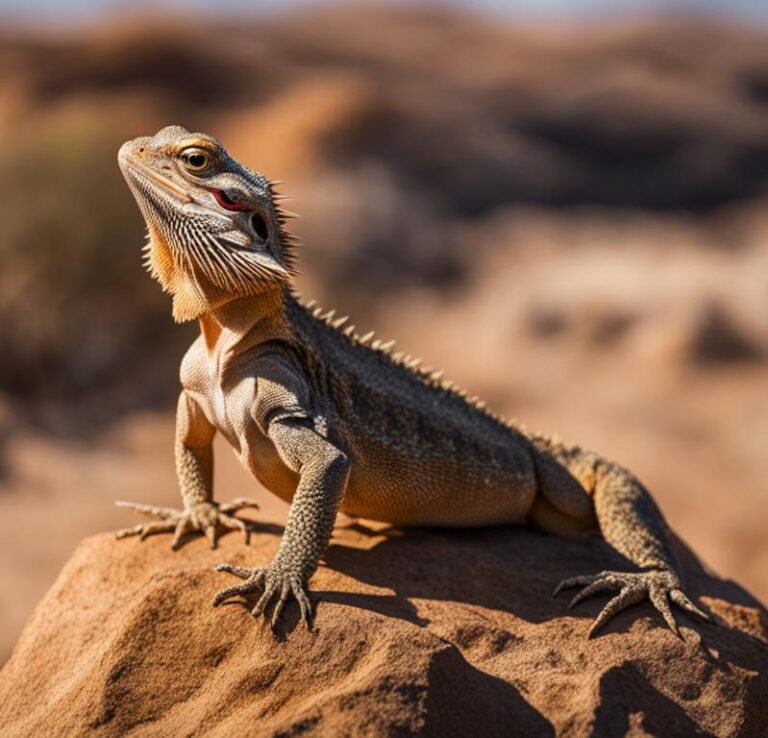Bearded Dragon Diet
When you are keeping any reptile as a pet, it is very important to give them the correct food to keep them healthy. Bearded dragons are omnivorous, which means that they eat both plants and animals in their natural habitat. The environment they evolved in is desert to semi desert, so they learned to grab anything that moved. A moving creature is likely to be a good source of protein. Small insects coupled with some greenery from low growing shrubs, becomes a good diet for them.
I’ve found a really good video, with lots of great information about the correct foods for bearded dragons when kept in captivity, and at different stages of heir lives. You can read a summary of the video below.
When it comes to keeping a bearded dragon, one of your primary concerns will be their diet. Understanding the bearded dragon diet is essential for their health and happiness. These creatures are omnivores, meaning they thrive on a mix of plants and animals. In this blog, we will dive deep into what they can eat, focusing on staple insects and vegetables, as well as how to properly feed your bearded dragon.
Table of Contents
Intro
Bearded dragons are fascinating pets, but feeding them can feel overwhelming. With so much conflicting information online, it’s easy to get confused. Don’t worry! We’ll clarify what you need to know about the bearded dragon diet, including what to feed, how much, and how often
Staple Insects
Let’s start with staple insects, which should form the bulk of your bearded dragon’s diet. Some great staples include:
- Crickets
- Dubia roaches
- Black soldier fly larvae (also known as calci-worms or calci-grubs)
- Orange head roaches
- Banana roaches
- Red runner roaches
- Lobster roaches
- Grasshoppers
- Baby hissing cockroaches
These insects are nutritious and won’t harm your bearded dragon when fed regularly. However, there are some insects that can be fed less frequently, they are:
- Hornworms
- Mealworms
- Superworms
Hornworms are high in moisture and can cause diarrhea if overfed. On the other hand, mealworms and superworms are very fatty and can lead to obesity if given too often. Treat them like desserts – great occasionally, but not every day!
Staple vegetables
Next up, let’s talk about vegetables! Many owners find their bearded dragons are picky eaters, especially when it comes to greens. The key is to offer them daily without pressure. Here are some staple vegetables to include:
- Collard greens
- Mustard greens
- Turnip greens
- Spring mix (remove spinach)
- Kale
- Escarole
- Bok choy
- Arugula
- Dandelion greens
- Romaine lettuce (for hydration)
Romaine lettuce is mostly water and serves as a great way to keep your dragon hydrated, but it lacks significant nutritional value. Therefore, it’s fine to offer it occasionally.
Romaine lettuce is mostly water and serves as a great way to keep your dragon hydrated, but it lacks significant nutritional value. Therefore, it’s fine to offer it occasionally.
Moderate vegetables you can offer include:
- Butternut squash
- Bell peppers
- Carrots
- Parsley
- Cilantro
- Zucchini
- Swiss chard
- Radicchio
- Dandelion flowers
Dandelion flowers can be picked from your garden, just be sure they haven’t been treated with pesticides!
Feeding Bearded Dragons
Now that you know what to feed your bearded dragon, how much should you offer? For baby bearded dragons, the insects should be about the size of their head, while the salad should be roughly half the size of their torso. As they grow and reach adulthood, their feeding schedule will change. Adult bearded dragons can be fed once or twice a week.
Don’t forget to provide a water bowl! Even though bearded dragons get most of their moisture from their food, having water available is a good practice. They might not drink often, but it’s essential for their hydration.
Lastly, avoid dried insects as they lack nutrients and can dehydrate your dragon. Always opt for fresh, live insects and greens.
Conclusion
In conclusion, maintaining a balanced bearded dragon diet is crucial for their health. By offering a mix of staple insects and vegetables, you can ensure your dragon gets the nutrition it needs to thrive. Remember, every dragon is unique, so observe their behaviors and adjust their diet as needed!

